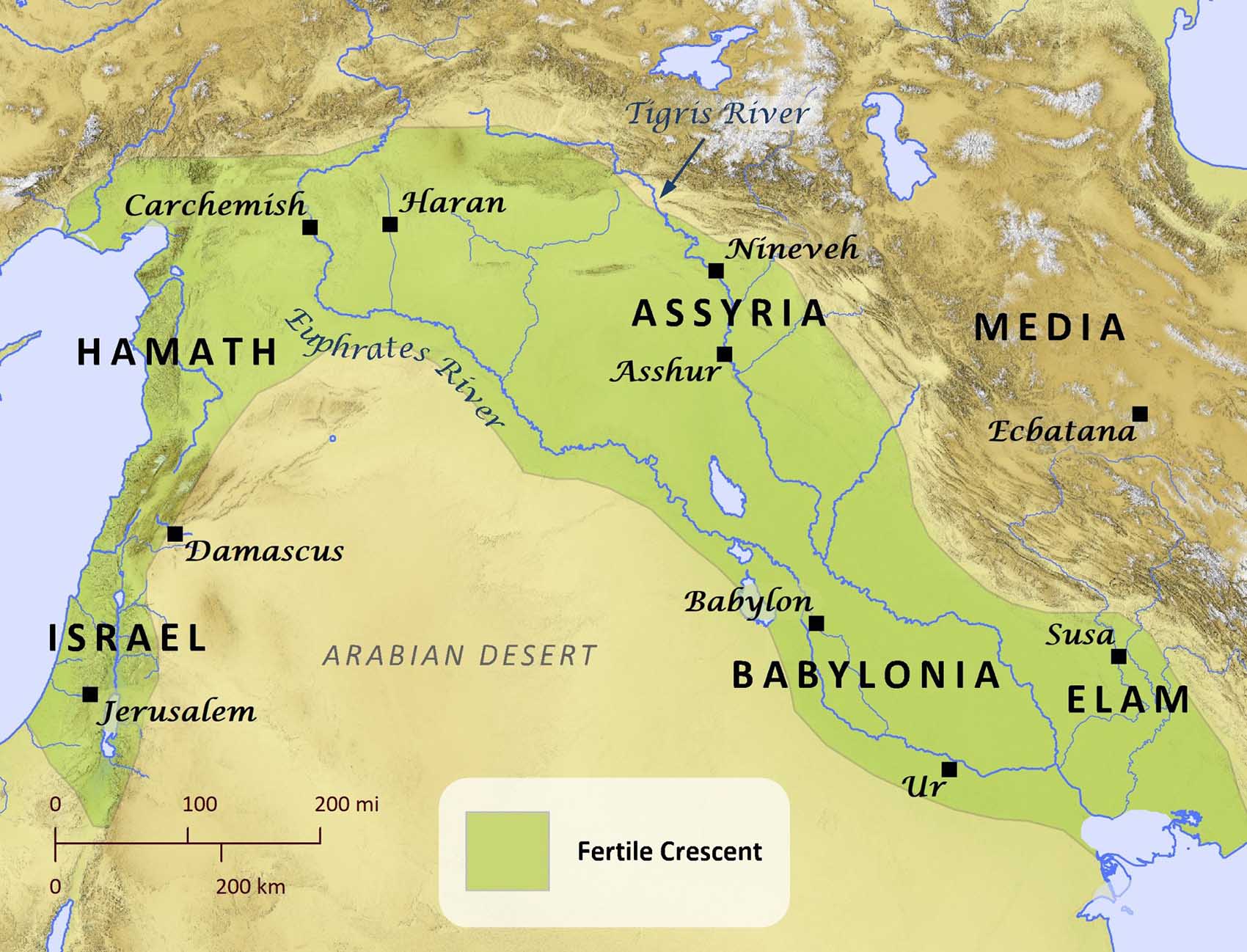Daniel rejects the promised reward but assures the king he will interpret the words on the wall. First, Daniel reminds Belshazzar that God gave Nebuchadnezzar power and majesty over all men.
Daniel has been summoned to the feasting hall of King Belshazzar. After drinking wine from the temple vessels from Jerusalem, the king is filled with terror upon witnessing a disembodied hand write words into the wall. No one in his court can interpret the words, so Daniel is called upon due to his history of insight and understanding when God speaks to man.
Belshazzar offers Daniel gold and the position of being the third ruler over Babylon, if he can interpret the writing on the wall. Daniel rejects these rewards, telling Belshazzar to keep his gifts for himself or to give the rewards to someone else. That is not to say that Daniel won’t read the words on the wall; he merely has no interest in Belshazzar’s payment. Perhaps Daniel rightly foresees the Medes and Persians’ coming victory as they besiege Babylon, and such rewards from a conquered king will have no value.
Even so, Daniel declares he will read the inscription to the king and make the interpretation known to Belshazzar. This must have relieved Belshazzar, since his court magicians and astrologers failed him, even though they would have gladly accepted the offered reward. Daniel assures the king he can and will explain the writing on the wall, but before that, Daniel delivers a history lesson involving the Most High God and Nebuchadnezzar, Belshazzar’s father (or predecessor).
This God, the Most High, and Nebuchadnezzar had a storied relationship. Daniel tells Belshazzar that it was God who granted sovereignty, grandeur, glory and majesty to Nebuchadnezzar. From an earthly perspective, it would seem that Nebuchadnezzar became the most powerful king of that era through conquest and shrewd ruling, but Daniel explains that this only happened because God granted it. God’s sovereignty trumps all earthly rulers. In Daniel 2:21, Daniel explained this to Nebuchadnezzar, “It is He who changes the times and the epochs; He removes kings and establishes kings.” Nebuchadnezzar was given his authority and prominence by God.
Because of the grandeur which God bestowed on Nebuchadnezzar, his subjects were in complete submission to the king. Daniel says that all the peoples, nations and men of every language feared and trembled before Nebuchadnezzar, and that whomever he wished he killed and whomever he wished he spared alive. God permitted Nebuchadnezzar to spare lives and to take lives. Other passages of Scripture echo this idea, that the governing authority is in place by God to deal punishment as needed, to deter or bring justice to crime: “But if you do what is evil, be afraid; for [governmental authority] does not bear the sword for nothing; for it is a minister of God, an avenger who brings wrath on the one who practices evil” (Romans 13:4). God had given Nebuchadnezzar the authority to take lives; He also gave the king the power to raise people up into powerful positions or to diminish them, whomever he wished he elevated and whomever he wished he humbled.
King Belshazzar likely up until this moment thought of himself as the most powerful man in the world apart from the Living God. But Daniel explains to him very clearly that all authority on earth is either given or taken by God. He will continue to teach about the sovereignty of God in the following verses.
Biblical Text
17 Then Daniel answered and said before the king, “Keep your gifts for yourself or give your rewards to someone else; however, I will read the inscription to the king and make the interpretation known to him. 18 O king, the Most High God granted sovereignty, grandeur, glory and majesty to Nebuchadnezzar your father.19 Because of the grandeur which He bestowed on him, all the peoples, nations and men of every language feared and trembled before him; whomever he wished he killed and whomever he wished he spared alive; and whomever he wished he elevated and whomever he wished he humbled.
Check out our other commentaries:
-
Psalm 51:10-12 meaning
Beyond healing and cleansing, David sees that he needs an entirely new heart. His old heart leads him astray. He prays that God would not...... -
Numbers 4:34-45 meaning
Verses 34-45 cover the census itself. This census counted how many males there were that were between 30 and 50 years old in each family....... -
Matthew 1:18-19 meaning
Matthew tells his account of Jesus’s miraculous conception and birth. His description of these events demonstrate and emphasize the dual natures of Christ, who was...... -
Exodus 38:8 meaning
The bronze laver is constructed. The materials are derived from bronze mirrors donated by the Israelite women....... -
Numbers 1:5-19 meaning
God names a man from each tribe to be appointed to help Moses and Aaron carry out the census.......



